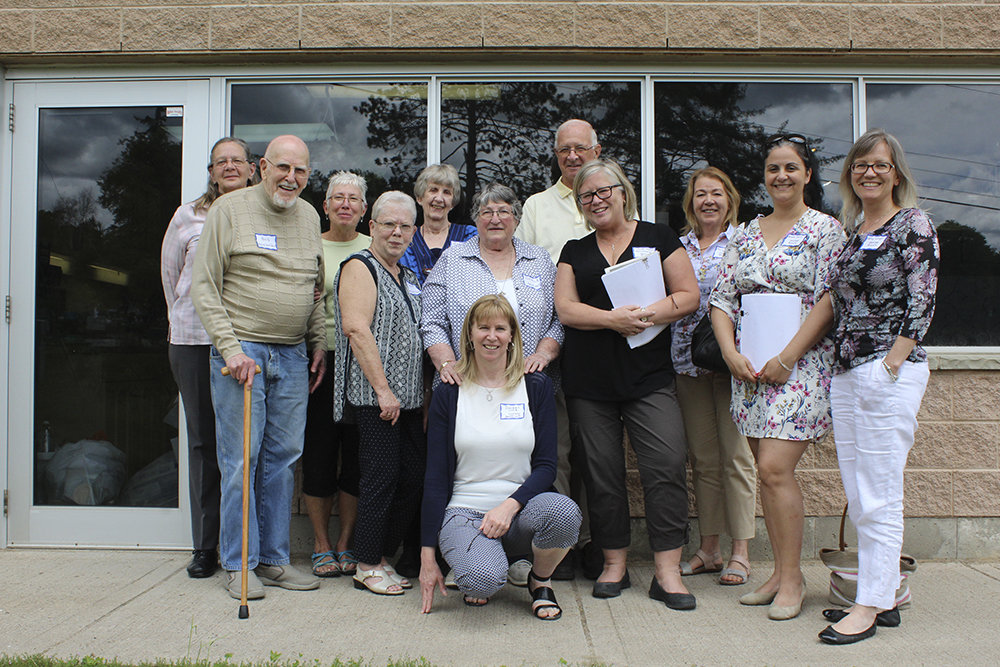Many Haliburton County residents aren’t ready to give up living on their own to move into a retirement home.
The Age-Friendly Master Plan, designed to address questions like this, caught the eye of some George Brown College professors recently.
On June 21, four faculty from the college made the trip to Haliburton to meet with the Aging Well Committee about the plan and how it works.
Doreen Boville, aging well chair, said they were excited the plan had attracted attention to the growing issues older adults face.
“Because they’re teaching students to work with older adults, they want to see what older adults do,” she said about the meeting.
The boardroom buzzed with excitement as the committee and the faculty of the Activation Co-ordinator/Gerontology Program exchanged stories and ideas.
One issue that was discussed by the group is housing. Questions such as ‘what happens if seniors aren’t ready to enter a retirement home yet but aren’t fully capable of being on their own?’ were asked and talked about in depth.
Solutions such as Airbnb, foreign caretakers and live-in PSW’s were brought forward.
Pamela Gauci, a professor at George Brown, said they are teaching the next generation of caretakers so they need to be informed of what is happening, even in small communities.
The college became interested in the plan after starting a new course in the program.
“A new course for us, started a couple years ago, called aging in place,” said Molly Marrack, the program co-ordinator.“
I couldn’t find a curriculum for it so I started reading master plans.” She said a student had found Haliburton’s online and sent it to her.
She included the plan in the course as an example to students of what it means to try and make services accessible to an aging population.
Marrack said the plan “presented an opportunity (to learn) because it’s the future of a lot of communities.”
The organization’s master plan came together after they received funding from New Horizons in 2012.
It includes both seasonal and full-time residents and narrowed down older adults’ needs to four top priorities: transportation, housing, access to community and health services and social participation.
The committee continues to work to improve life for older adults in the county by holding events such as bridging the gap: independence to assistance on September 27 and the housing summit October 18.





